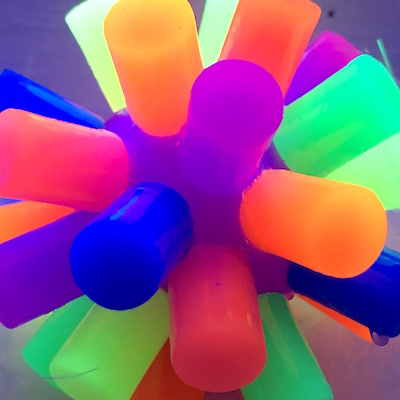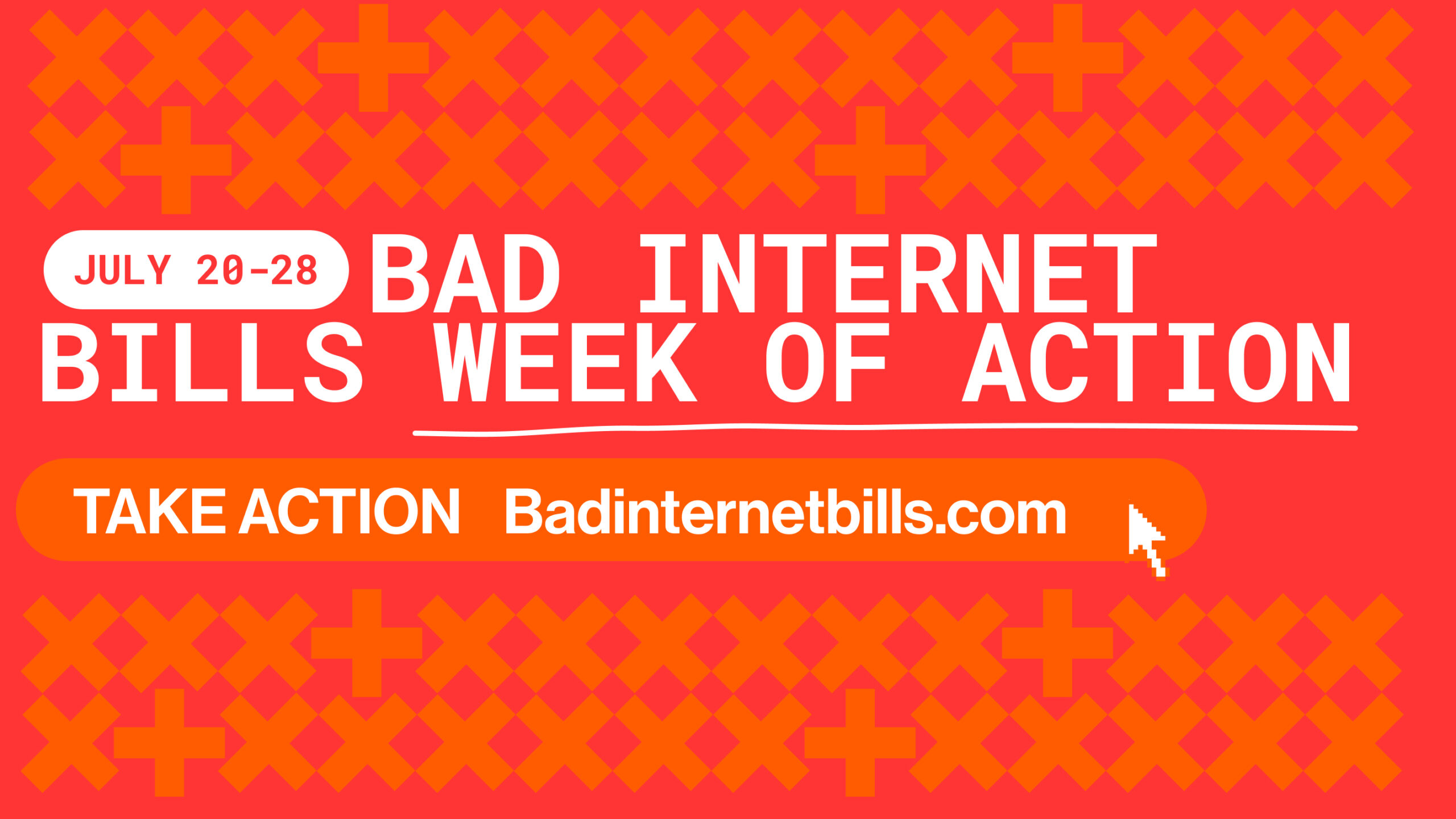- cross-posted to:
- [email protected]
- [email protected]
- [email protected]
- cross-posted to:
- [email protected]
- [email protected]
- [email protected]
Here’s how EFF desribes the situation in You Can Help Stop These Bad Internet Bills
“Red alert! For the last six months, EFF, our supporters, and dozens of other groups have been sounding the alarm about several #BadInternetBills that have been put forward in Congress.We’ve made it clear that these bills are terrible ideas, but Congress is now considering packaging them together—possibly into must-pass legislation. I’m asking you to join us, ACLU, Fight for the Future, and other digital rights defenders in a week of action to protect the internet.”
Can the fediverse help? The fediverse has some potential advantages for activism on topics like privacy, digital rights, and LGBTQIA2S+ issues. So it’s worth experimenting, and the July 20-28 week of action on Bad Internet Bills is a great opportunity – to learn, and hopefully to have an impact as well.
Here’s four easy ways to help:
- Upvote and boost posts in [email protected] – and cross-post them to other communities and magazines where they’re on-topic
- On Mastodon, boost posts on the #BadInternetBills and #KOSA hashtags
- Get the word out on other social networks too
- If you live in the US, contact your legislators using Fight for the Future’s https://www.badinternetbills.com/



There’s actually a footnote in the article about that!
I’m using LGBTQIA2S+ as a shorthand for lesbian, gay, gender non-conforming, genderqueer, bi, trans, queer, intersex, asexual, agender, two-sprit, and others who are not straight, cis, and heteronormative. Julia Serrano’s trans, gender, sexuality, and activism glossary has definitions for most of terms, although resources like OACAS Library Guides’ Two-spirit identities page go into a lot more detail. Serrano also discusses the tensions between ever-growing and always incomplete acronyms and more abstract terms like “gender and sexual minorities”. There’s a Mastodon instance called lgbtqia.space, and Indigenous people are often overlooked in the fediverse, so I decided to go with the acronym despite its problems.
I guess it’s less of an issue in text, but LGBTQIA2S+ is way too much to say in conversation, and attempting to use terms that can’t really be spoken feels weird. Just being able to say queer community instead of listing five letters every time the LGBTQ community came up in conversation was a relief, so to see it potentially expanding in the other direction almost feels stressful.
I mean, wasn’t the purpose of LGBTQ for the Q to encompass everyone that’s not heteronormative and not lesbian, gay, bisexual, or trans? Not trying to rag on attempts at representation, but attempting to enumerate every member of a diverse group, as the acronym for the group itself feels doomed to be unwieldy. Being honest, it reads like a product ID at first glance.
It’s tricky. There are asexual, intersex, and two-spirt people who don’t identify as queer so shortening it to LGBTQ can be seen as erasing identities (who are frequently already marginalized in queer communities). I don’t tend to use the full acronym in conversation, and you’re right that it reads like a product ID, but the asexual, intersex, and two-spirt people I know generally appreciate it.
I guess I don’t quite see why they would then be joining the queer community if they feel being under the queer umbrella isn’t accurate. Wouldn’t they be allies, and not members?
I know that membership and support are delicate topics and I don’t want give the impression of pushing against acceptance, but if you want your identity to be represented as a headline letter in the queer community, but also don’t consider yourself queer, what exactly is the intent?
It just seems like at that point switching over to GSM makes a lot more sense than attempting to represent every identity directly, especially when it begs the question of why non-binary, pansexual, and others are excluded in preference to IA2+ folks. Idk, just seems like a fraught topic.
It is very much a fraught topic, so thanks for the very good discussion! Many intersex and asexual people don’t think of themselves as joining the queer community; neither do some trans people, and for that matter some gay, lesbian, and bi people actively dislike the term “queer”. It’s complex! Sometimes it makes sense to highlight specific identities – which is what I did in the post I did on [A (partial) queer, trans, and non-binary history of Mastodon and the fediverse](A (partial) queer, trans, and non-binary history of Mastodon and the fediverse) – but sometimes an umbrella term is more useful, and there really aren’t any great options. It’s a fair point that non-binary, pansexual, and others aren’t included in the acronym … like I said in the post, I with with LGBTQIA2S+ for this one because there’s a Mastodon instance called lgbtqia.space, and Indigenous people are often overlooked in the fediverse so I thought it was important to call out the two-spirit aspect. That said if I had known that 75% of the comments on this post would be about the acronym I might have taken a different path!
Yeah, bit of a shame that the acronym wound up being a lightning rod for engagement instead of, you know, the actual article lol. But despite it being around for at least a year (from when I was poking around), I think this was the first time many people saw that particular acronym. Especially after LGBTQ+ became the definitive inclusive option, albeit not as permanently as I’d imagined.
At any rate, I feel like GSM is at least easy to use as an umbrella and lacks the charged history of queer being a reclaimed word. It might not spread awareness of smaller groups directly, but at least it keeps the focus on topic.
Yeah, I’ve been telling people “good news: 25 comments on the article! bad news: almost all of them were about the acronym”. Oh well, we learn by doing. And as you say, a lot of people saw the acronym for the first time, and at least one person learned that two-spirt doesn’t refer to furries, so there was some useful education … it wasn’t my primary goal here but that’s never a bad thing.
Different terminology makes sense in different contexts – and from different people. For a lot of what I write, I want the resonance of queer’s charged history; other times, it might not make as much sense.
Removed by mod